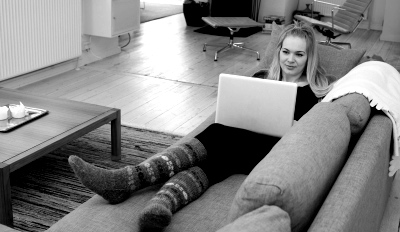What does the ‘gig economy’ have to do with business centres? Quite a lot. It relates directly to the changing workplace and to your future (and not-so-future) clients.
Wait, what’s a gig economy anyway?
Tap it into Google and most of the articles you’ll find have been written within the past few months. It’s a relatively new term, and it’s causing quite a stir. It’s been coined to represent the shifting culture of not just the workplace, but the people that fill it. Or rather, the people who are choosing NOT to fill it.
It refers to freelance workers and contractors who earn a living through work ‘gigs’. They apply for advertised jobs through media like peopleperhour.com, Task Rabbit, eLance, oDesk and so on. Most jobs are one-off, hence the reference to a ‘gig’.
The crux of the matter lies in the growing number of people who, perhaps dissatisfied with the inflexible nature of the workplace (remember that many workers now choose flexibility over a pay rise), are choosing to go their own way. The harsh reality is that for some, the gig lifestyle simply doesn’t pay enough.
Regardless, faced with the prospect of paying for affordable talent on a pay-as-you-go basis – and generally without the HR headaches of National Insurance, fixed salaries and employee benefits – many employers are now turning to ‘giggers’ to fulfil their resourcing needs. And there are plenty of people ready to respond.
“Relic”
This in itself is further encouraging the transformation of the workplace.
“The standard workweek [is] a prison of the past” says Sara Horowitz, CEO and founder of Freelancers Union, who has made it her business to understand modern workers and what motivates them. She believes that the 9-to-5 we used to know and love has become a restricting relic of yesteryear that’s no longer required in the modern world of business.
“Today, independent workers are replacing that old bargain with something far better, and saner,” she says. “Success in 2014 is less about wealth than it is about value – the value of time, community, and well-being.”
Whether or not you agree with Sara, there’s no denying the changing face of the workplace.
Business centre operators are on the front line of this gradual shift towards a more flexible way of working. They can see it in the rising demand for hot-desking and coworking, in BYOD trends, in the more mobile nature of workers and CEOs, and in the need for more flexible workspace locations that are closer to home.
There’s plenty more to come – and the gig economy plays a starring role.
We’ve already got plenty of gigs in the business centre industry. Think of Virtual Assistants, and the admin work your reception team carries out for your business centre clients. Beyond that, many business centres hire freelancers for website help, or to manage their social media strategy, or to look after their SEO campaign.
You’ll probably find more freelancers, contractors and ‘giggers’ using your workspaces too. Given the varying and highly flexible nature of their work, many of them won’t want a permanent or full-time office. Instead a community-rich coworking space, a hot-desk or some other form of pay-as-you-go collaborative workspace will probably do just fine.
Luxury office
Of course many desk-based freelancers choose to work from home the majority of the time. The cost of an office can be a price few want to part with. And there’s always the danger that when companies outsource work to home-based freelancers, they won’t need so much office space.
Yet on the flip side, with the cash saved on permanent staff, who’s to say those same companies won’t upgrade their workspace or move into your luxury corner office?
There are 1.72 million freelancers in the UK, and over 42 million in the United States. It’s becoming a normal way of life. Whatever you want to call it – ‘gig economy’, ‘freelance boom‘, the ‘future of work’ – it’s happening, and all the signs suggest it’s accelerating. Are you ready for the new economy? Or will that old ‘relic’, the 9-to-5, prevail?



 Dr. Gleb Tsipursky – The Office Whisperer
Dr. Gleb Tsipursky – The Office Whisperer Nirit Cohen – WorkFutures
Nirit Cohen – WorkFutures Angela Howard – Culture Expert
Angela Howard – Culture Expert Drew Jones – Design & Innovation
Drew Jones – Design & Innovation Jonathan Price – CRE & Flex Expert
Jonathan Price – CRE & Flex Expert













